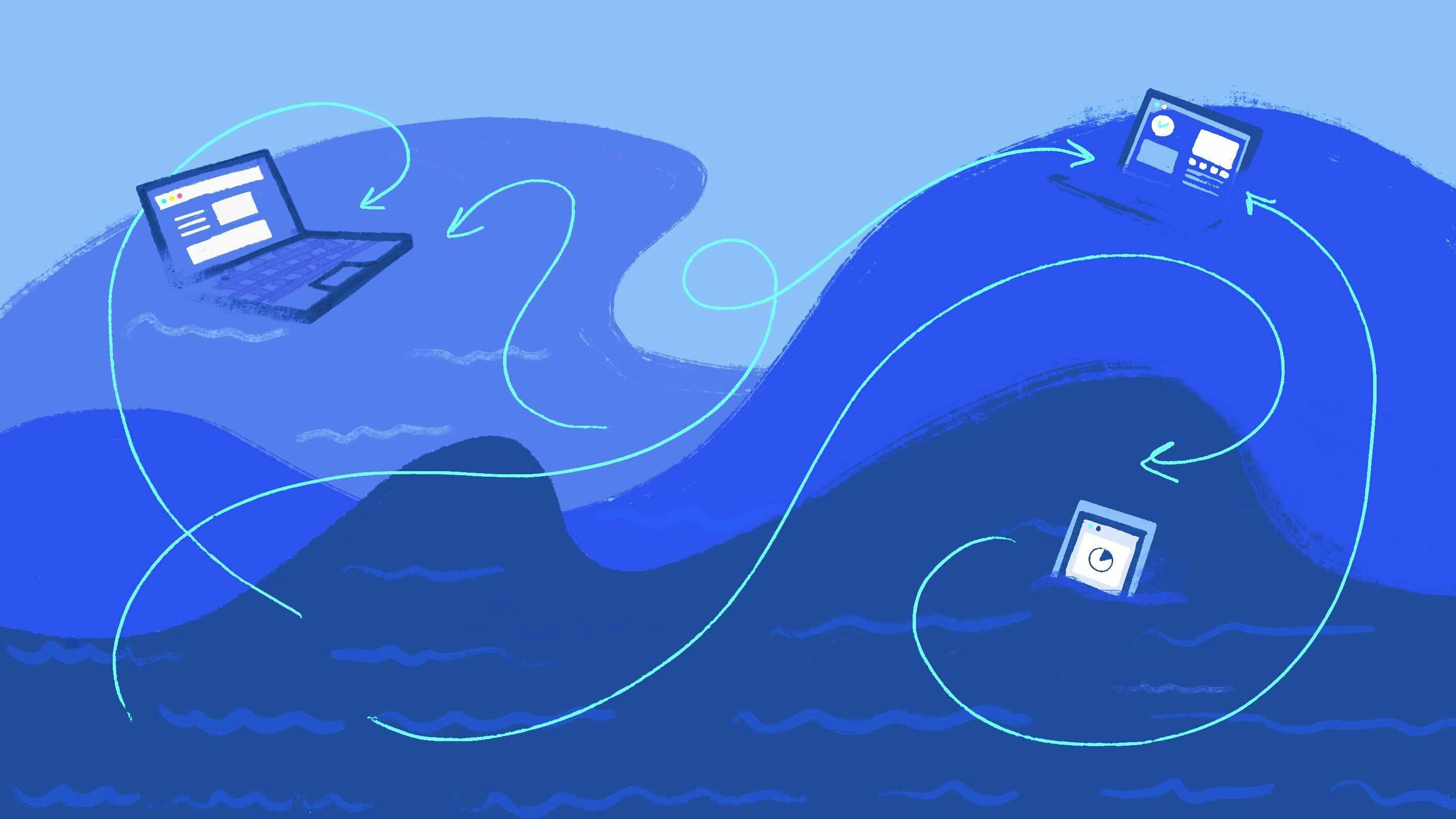Riding the waves of demand and increasing sales in a sea of uncertainty. How to grow, scale and succeed with an online B2C business
ith the tailwinds of 2020 still prevailing and online demand unrelenting, competition across the ecommerce industry has never been greater or more unpredictable. As the waves of the pandemic ebb and flow, we explore what it takes for an online business to succeed in a sea of uncertainty.
Following the outbreak of COVID-19 in 2020, consumer behavior changed overnight and demand for online shopping grew exponentially. According to the Boston Consulting Group (BCG), 40 percent of consumers used online grocery shopping for the first time during the pandemic .
From remote working to online hospital consultations, from online wedding ceremonies to grocery shopping and even online house viewings, COVID-19 forced organizations to undergo unprecedented digitalization in a matter of weeks. The fear of infection, coupled with the relative ease and comfort of conducting business and shopping online, prompted unparalleled demand for digital services and retail platforms.
But how can organizations navigate safe passage through these turbulent times?

Get your ship (or shop) in shape
To keep ahead and stay competitive, online businesses first need to get their platforms and marketplaces in order. Building a comfortable, secure and simplified shopping experience is pivotal in making an online business successful.
As Emil Guldbrandsen from Obsidian Digital and a workshop leader for the E-Commerce Booster Program says,
“First get your ship in shape and understand your market. Make sure that your business is ready and your online ecommerce presence is well-equipped and prepared to start selling and performing across platforms.”
This involves everything from ensuring the domain is correctly verified to integrating the Facebook pixel, from creating cross-platform and multi-experience campaigns to ensuring that your products are tagged correctly and that the purchase process is easy to use.

Emil Guldbrandsen from Obsidian Digital

Dive deep into data to set the course
Yet once the ship, or rather shop, is in order, how do you set sail and ride on the waves of demand?
Businesses not only need to continually adapt to ever-changing digital trends and behavior, they also need to dive deep into data to make sure they set the right course and can navigate ever-evolving needs and demands.
As Emil explains, “Gone are the days of trusting your gut to know where the latest trend or demand will come from. The data that is now available to businesses is truly amazing, yet if we believe that we can beat the algorithms through gut instinct alone, then we would miss out on a great opportunity to be strategic and targeted in our approach.”

Avoid casting the anchor into unknown depths
For Emil, one mistake that businesses make is setting the wrong campaign objectives. Many set a goal of increased views when they should focus on increased purchases. However, the goal of increased views casts the anchor into unknown depths and the people who view the campaign are not necessarily the ones who will actually convert into a sale.
Instead, businesses should dive deep into the data so that they can be strategic and use the benefit of AI to do the work for them. Overall, he says the best thing companies can do is to consolidate their efforts, test their campaigns and let the algorithm do the work.
But once you’ve got your shop shipshape and campaigns running successfully, how do you reach an international audience?
Gone are the days of trusting your gut to know where the latest trend or demand will come from. The data that is now available to businesses is truly amazing ...

Christian-Arnstedt, Vasilij-Brandt, Pascar-Paramasivam and Jakob-Wagner from Nordgreen
Think globally, but start by engaging locally
The BCG Consumer Sentiment survey in 2020 estimated that ecommerce would reach a mind-blowing $5 trillion in sales in 2021. But how can online businesses tap into this extra global demand?
One startup that has successfully reached a global market is Nordgreen. Founded in 2017 by Pascar Sivam and Vasilij Brandt, it has grown rapidly since its launch. Driven by a passion for design-led watches and a desire to create a sustainable brand, Nordgreen’s sales have grown from $1 million in the first year to an anticipated $25 million in 2021, and has customers across 150 countries.
From the outset, Nordgreen identified markets where they knew there was a strong demand for watches, and created a local website for each one (in the local currency and language). Instead of opening offices across the world, Vasilij hired local market experts and runs the whole operation from their Danish office.
Nordgreen also has a very prolific digital presence across all social media platforms and has invested in organic search, SEO, PR, brand and influencer marketing. With help from the Copenhagen Business Hub, they were also able to create a plan for entering new markets. “We worked with the Copenhagen Business Hub to increase our brand awareness and worked closely with one of their industry experts who had vast knowledge of the design and retail industry. They helped us to grow our presence in an otherwise untapped market which held great potential for us.”
Being able to tap into the Copenhagen Business Hub network was invaluable, and they are connected to so many companies and experts.

Top tips to boost your business
Although unchartered waters still lie ahead as the waves of the pandemic continue to surge and recede, here are some tips to help boost success:
- Make sure that the scaffold of the ecommerce platform is fit for purpose.
- Build a strong brand that articulates the story of the organization.
- Create a buying process that is easy to use and secure.
- Tap into the wealth of data available and work with the algorithm.
- Think globally, yet engage locally with highly localized content and campaigns.
Both Vasilij and Emil recommend that growth-hungry businesses participate in growth programs – such as the E-Commerce Booster, run by the Copenhagen Business Hub in collaboration with Obsidian Digital – if they want to expand. According to Vasilij, “Being able to tap into the Copenhagen Business Hub network was invaluable, and they are connected to so many companies and experts. The team at the Hub challenged us in the best possible way, forcing us to take a step back and really think about what it is that we want to achieve, why we are doing it and how we should be going forward. They instilled a very creative and reflective mindset in our team which was very positive and helped us grow.”
[ Read also:Why Copenhagen is a great place for startups ]
What is the E-Commerce Booster
The E-Commerce Booster is an intensive, tailor-made program that gives organizations a chance to focus their strategy, explore and refine their current platforms and look at how they can convert more sales and grow their businesses.
Aimed at small to medium-sized B2C businesses who are looking to expand and scale online, it provides mentoring sessions, a workshop series, the chance to attend the world’s largest ecommerce conference, Shoptalk and the option of further subsidized coaching.
The deadline for applications is September 30, 2021. Applicants will be selected by a panel from Erhvervshus Hovedstaden and Dansk Erhverv Digital Handel on a first-come, first-served basis.

Useful Links
Copenhagen Business Hub: https://ehhs.dk/
Nordgreen: https://nordgreen.dk/
Obsidian Digital: https://obsidian.dk/
Find out more about the E-commerce Booster here.


